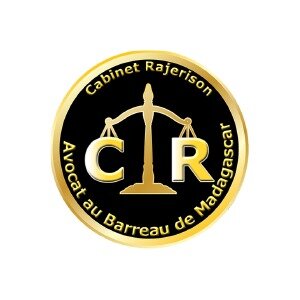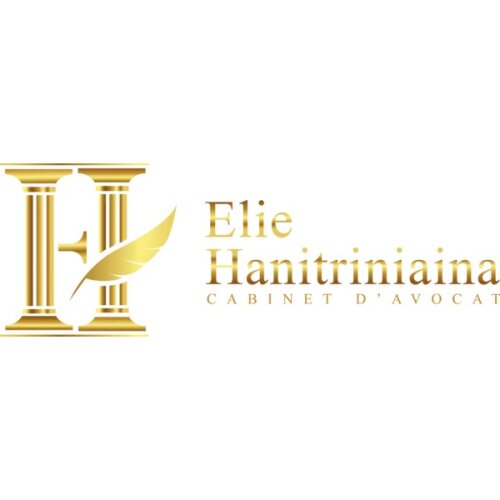Best Faith-Based Law Lawyers in Antananarivo
Share your needs with us, get contacted by law firms.
Free. Takes 2 min.
List of the best lawyers in Antananarivo, Madagascar
About Faith-Based Law in Antananarivo, Madagascar
Faith-Based Law in Antananarivo, Madagascar, is an intriguing blend of the country's traditional customs, religious norms, and formal laws. As Madagascar is a culturally diverse nation, legal considerations often intersect with religious doctrines and community practices. The main religions practiced include Christianity and Islam, with these faiths often playing a crucial role in family law, inheritance, and community dispute resolution. In Antananarivo, this interaction is particularly prominent, reflecting the city's status as a cultural and administrative hub. Understanding Faith-Based Law requires recognizing how religious beliefs inform legal decisions and influence societal norms in this context.
Why You May Need a Lawyer
There are several situations in which one might require legal help with Faith-Based Law in Antananarivo:
- Marriage and Divorce: Legal representation may be needed to navigate marriage contracts or resolve divorces where religious laws affect proceedings.
- Inheritance Disputes: Faith-Based Law can impact the distribution of assets. Legal advice is crucial when addressing religious considerations in inheritance matters.
- Business Transactions: For businesses owned by religious entities or individuals, ensuring compliance with both secular and religious obligations often requires expert guidance.
- Community Disputes: Disagreements within religious communities may need legal intervention to achieve resolutions that adhere to both religious and secular laws.
- Religious Discrimination: Legal assistance can be vital in cases where there is perceived discrimination based on faith in employment or other domains.
Local Laws Overview
The laws in Antananarivo incorporate elements from both national statutes and traditional customs. Familiarity with key aspects relevant to Faith-Based Law is essential:
- Constitutional Framework: Madagascar’s Constitution guarantees freedom of religion, ensuring that legal practices respect diverse faiths within the legal system.
- Family Code: This code addresses marriage, divorce, and inheritance laws, often intersecting with religious norms, particularly in ceremonial practices.
- Customary Laws: Local customary practices, recognized at a policy level, often dictate the application of Faith-Based Law in personal matters.
- Dispute Resolution Mechanisms: Traditional and religious councils sometimes play an active role in resolving disputes, supplementing formal legal systems.
Frequently Asked Questions
1. How does Faith-Based Law interact with the national legal system?
Faith-Based Law in Madagascar operates alongside the national legal system, often influencing family law, inheritance, and community practices through religious teachings and traditional customs.
2. Can religious laws override national laws?
In Madagascar, national laws generally take precedence. However, religious practices are respected, especially in personal matters such as marriage and inheritance, provided they comply with overarching legal standards.
3. Do I need a lawyer for religious marriages?
While not legally mandatory, a lawyer can help ensure that marriage agreements are compliant with both religious and civil legal requirements.
4. What role do religious leaders play in legal disputes?
Religious leaders may mediate disputes within their communities, providing resolutions that align with faith-based principles, though these are not legally binding without formal legal acknowledgment.
5. Are there specific courts for Faith-Based Law?
No separate courts exist specifically for Faith-Based Law in Madagascar. However, customary practices may inform proceedings in relevant cases within the formal court system.
6. How is inheritance determined under Faith-Based Law?
Inheritance can be influenced by religious customs, requiring experts' guidance to align these practices with the statutory inheritance laws of Madagascar.
7. Can Faith-Based Law affect business operations?
Yes, particularly for faith-based entities or businesses operating within religious communities. Legal advice ensures compliance with both religious guidelines and national laws.
8. What resources are available for learning about Faith-Based Law?
Various NGOs and community organizations offer resources and workshops designed to educate individuals on the intersections of faith and law.
9. Can faith-based arbitration be legally binding?
Such arbitration is typically not legally binding unless approved and recognized by the formal court system of Madagascar.
10. What is the process for resolving community disputes?
Community disputes may involve mediation by religious and community leaders before escalation to formal legal proceedings if a resolution cannot be reached.
Additional Resources
The following resources may be helpful:
- Ministry of Justice: Provides information on national laws and legal aid services.
- Local Religious Councils: Offer guidance on religious legal matters and community dispute resolution.
- Non-Governmental Organizations: Some NGOs focus on legal education and assistance, particularly in contexts where religion and law intersect.
Next Steps
If you require legal assistance in the realm of Faith-Based Law in Antananarivo, consider the following steps:
- Identify the specific legal issue you are facing.
- Consult with a lawyer specializing in Faith-Based Law who understands both national statutes and religious customs.
- Gather all pertinent documentation and information relevant to your case.
- Utilize local and governmental resources to ensure a comprehensive understanding of your rights and obligations.
- Engage in alternative dispute resolution if recommended and appropriate, such as mediation through religious councils.
Through informed decision-making and professional guidance, navigating Faith-Based Law in Antananarivo can be managed effectively.
Lawzana helps you find the best lawyers and law firms in Antananarivo through a curated and pre-screened list of qualified legal professionals. Our platform offers rankings and detailed profiles of attorneys and law firms, allowing you to compare based on practice areas, including Faith-Based Law, experience, and client feedback.
Each profile includes a description of the firm's areas of practice, client reviews, team members and partners, year of establishment, spoken languages, office locations, contact information, social media presence, and any published articles or resources. Most firms on our platform speak English and are experienced in both local and international legal matters.
Get a quote from top-rated law firms in Antananarivo, Madagascar — quickly, securely, and without unnecessary hassle.
Disclaimer:
The information provided on this page is for general informational purposes only and does not constitute legal advice. While we strive to ensure the accuracy and relevance of the content, legal information may change over time, and interpretations of the law can vary. You should always consult with a qualified legal professional for advice specific to your situation.
We disclaim all liability for actions taken or not taken based on the content of this page. If you believe any information is incorrect or outdated, please contact us, and we will review and update it where appropriate.










